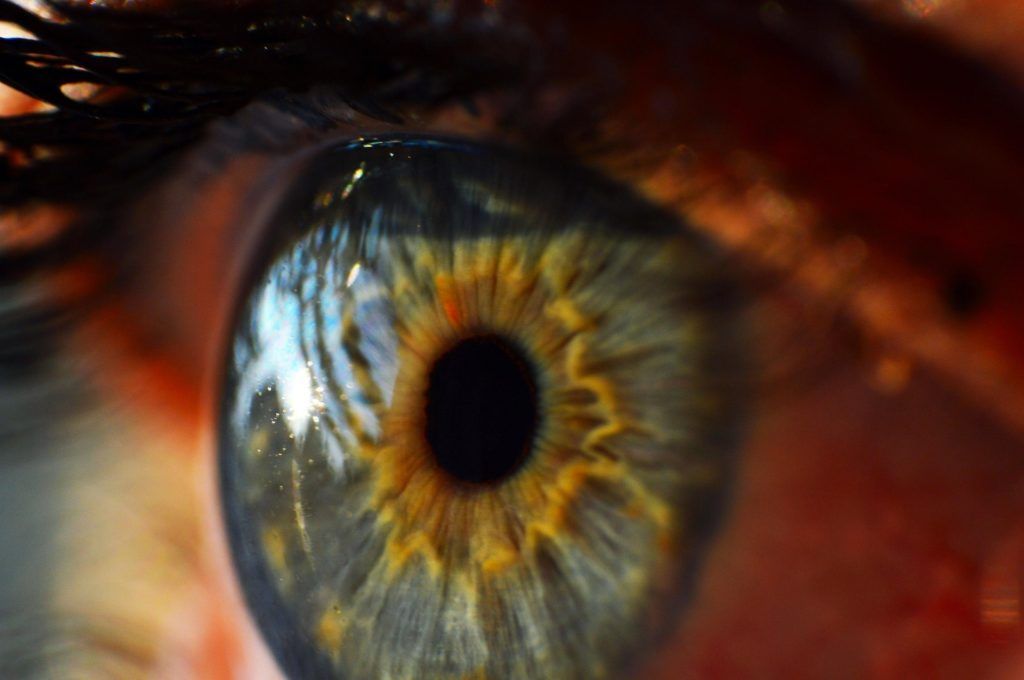Ask An Ophthalmologist: What Is Macular Degeneration?
 Macular degeneration is a common condition that causes the loss of central vision, which means that an object will be out of focus when you look directly at it. It’s called macular degeneration because it’s a deterioration of the macula, which is the small central portion of the retina that’s responsible for central vision. When the macula doesn’t work properly, your central vision appears blurry, darkened, or distorted. This can greatly affect activities like driving, reading, cooking, and other tasks that require you to focus on what’s in front of you. Macular degeneration does not affect your peripheral, or side, vision.
Macular degeneration is a common condition that causes the loss of central vision, which means that an object will be out of focus when you look directly at it. It’s called macular degeneration because it’s a deterioration of the macula, which is the small central portion of the retina that’s responsible for central vision. When the macula doesn’t work properly, your central vision appears blurry, darkened, or distorted. This can greatly affect activities like driving, reading, cooking, and other tasks that require you to focus on what’s in front of you. Macular degeneration does not affect your peripheral, or side, vision.
Symptoms
Many people don’t realize they have macular degeneration until their vision has become compromised. Symptoms of macular degeneration include:
- Blurriness when looking straight ahead
- Dark spots or whiteouts in the center of your vision
- Straight lines appear wavy or distorted
- Reduced depth perception
- Difficulty recognizing contrast in colors or textures
- Sensitivity to changes in light
It’s important to have regular visits to an ophthalmologist before any of these symptoms begin. But if you’re already experiencing any of the symptoms above, schedule an appointment with your ophthalmologist. Your eye doctor will examine your eyes to see if the symptoms you’re having is a result of macular degeneration or another eye condition.
Who’s At Risk?
Macular degeneration is most often related to aging, but it also has a hereditary link. If a parent or grandparent had macular degeneration, your risk for also developing it increases. You have a higher risk of developing macular degeneration if you:
- Are over 50
- Have a family history of macular degeneration
- Eat foods high in saturated fat
- Have high cholesterol levels
- Have heart disease
- Smoke cigarettes
- Are Caucasian
Treatments
Unfortunately, there is no cure for macular degeneration, but there are different treatment options available. Your eye doctor will recommend a treatment plan that’s best for you based on the type of macular degeneration you have and how far it has progressed. These treatments may include:
- A cocktail of antioxidant vitamins
- Anti-VEGF medications such as Avastin or Lucentis
- Laser therapy
- Low vision aids
- Surgery
- Retinal translocation
Prevention
As with any other eye disease, the best way to prevent macular degeneration is to maintain a healthy weight and low cholesterol levels, avoid smoking, and have regularly scheduled comprehensive eye exams to screen for macular degeneration—particularly if you’re 50 or older and/or have a family history of the disease.
The earlier macular degeneration is detected, the more likely treatment will be successful at preventing additional vision loss. Baptist Eye Surgeons is an ophthalmological practice dedicated to providing quality eye care to patients whose needs range from routine comprehensive eye examinations to the treatment of eye diseases like macular degeneration.
To request an appointment or get directions to our Knoxville and Morristown locations, visit our website. Call us at 865-579-3920 for more information, or visit us online to schedule an appointment.





